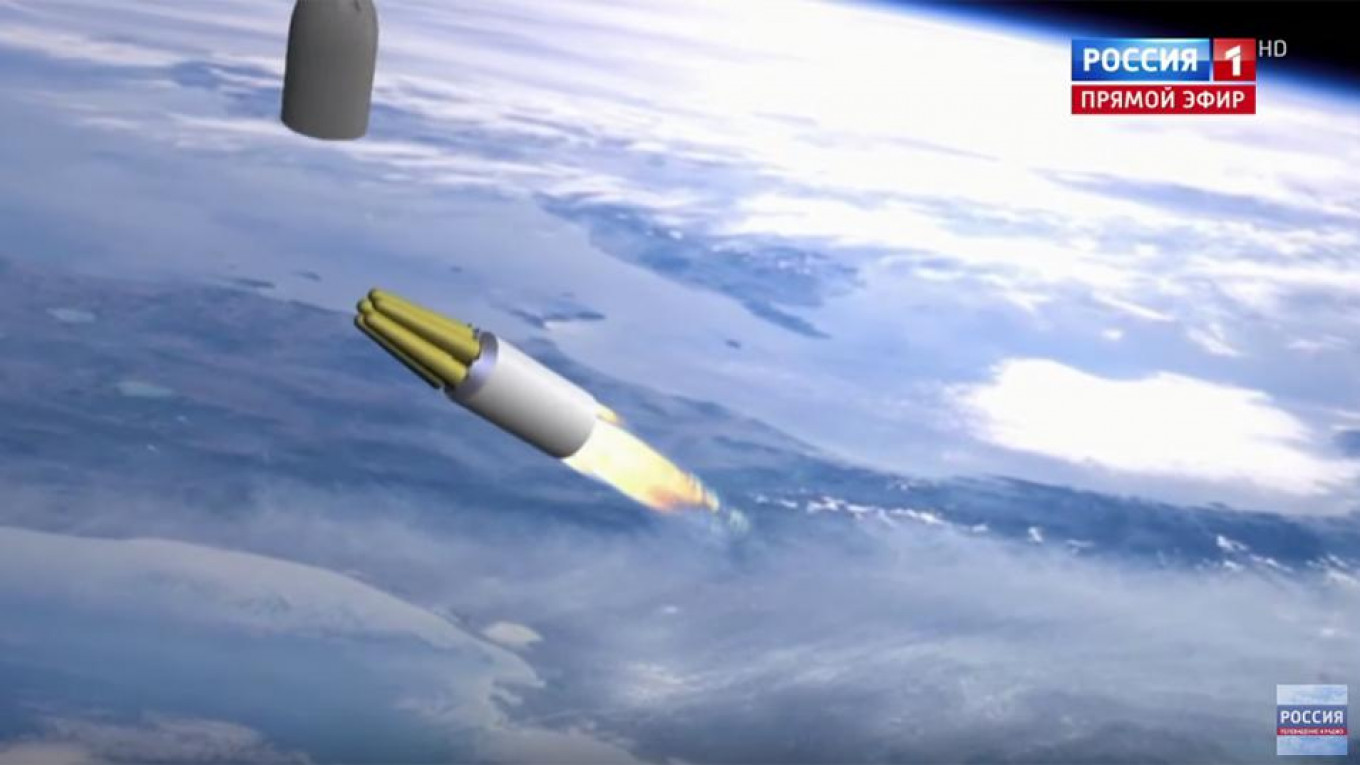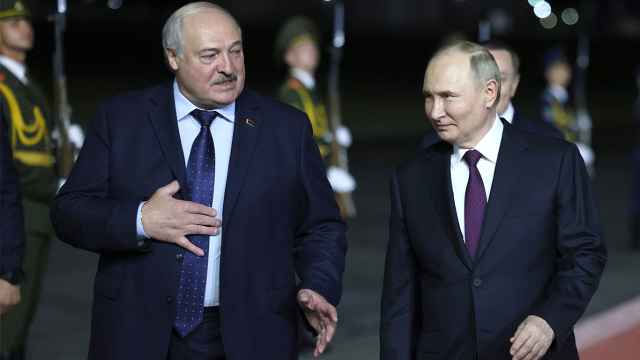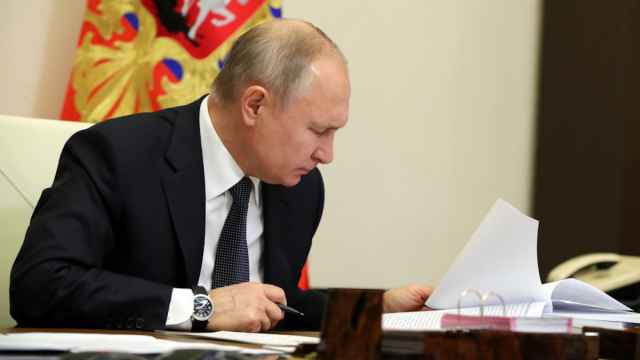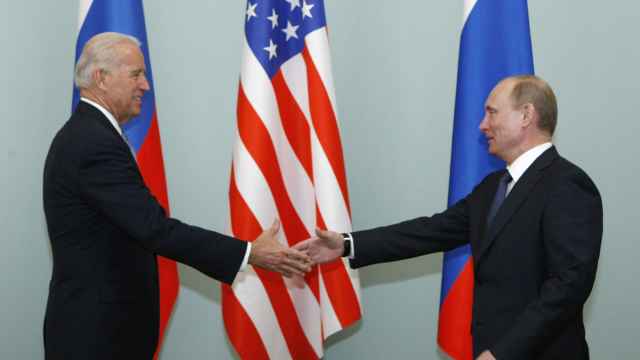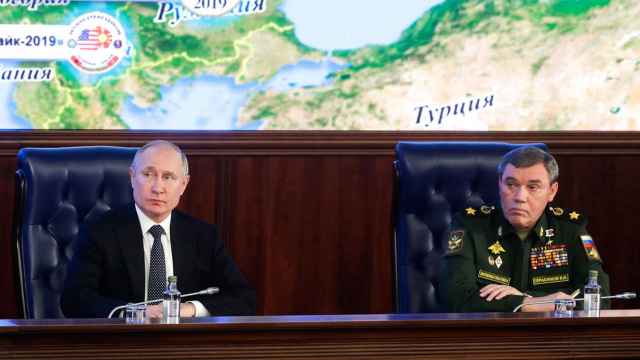The animations used by President Vladimir Putin to accompany his militaristic speech on Thursday go back at least a decade, reports say.
Putin on Thursday gave his annual speech to the Federation Assembly, ahead of presidential elections on March 18. He used the occasion to announce an array of new nuclear weapons he claimed could travel anywhere in the world and avoid interception.
One of the animations displayed on a giant screen showed a series of nuclear warheads attacking what appeared to be the U.S. Gulf Coast.
Some news outlets immediately pointed out that the footage displayed on the giant screen in Putin’s address was taken from a documentary titled "Satan" that was broadcast in 2007 on Russia's state-run Channel One television channel.
"In the original, the warheads hit the target, but this moment was not shown in the video during the [2018] speech," the Republic.ru news website reported on Thursday.
The same animation of the Intercontinental Ballistic Missile, or ICBM, called the Sarmat, was used again in a Channel One broadcast in 2011, the Newsru.com news website reported.
Russian opposition leader Alexei Navalny, who has been barred from the elections over a criminal conviction which his supporters say is politically motivated, on Twitter mocked the series of video demonstrations as "cartoons."
A Message from The Moscow Times:
Dear readers,
We are facing unprecedented challenges. Russia's Prosecutor General's Office has designated The Moscow Times as an "undesirable" organization, criminalizing our work and putting our staff at risk of prosecution. This follows our earlier unjust labeling as a "foreign agent."
These actions are direct attempts to silence independent journalism in Russia. The authorities claim our work "discredits the decisions of the Russian leadership." We see things differently: we strive to provide accurate, unbiased reporting on Russia.
We, the journalists of The Moscow Times, refuse to be silenced. But to continue our work, we need your help.
Your support, no matter how small, makes a world of difference. If you can, please support us monthly starting from just $2. It's quick to set up, and every contribution makes a significant impact.
By supporting The Moscow Times, you're defending open, independent journalism in the face of repression. Thank you for standing with us.
Remind me later.


